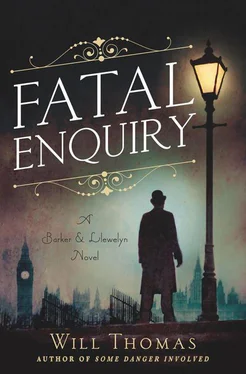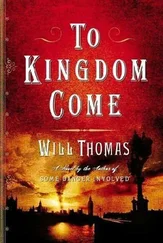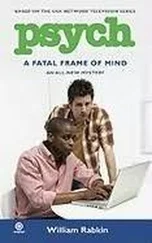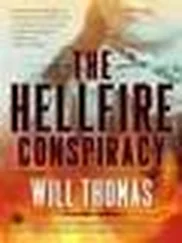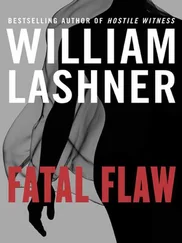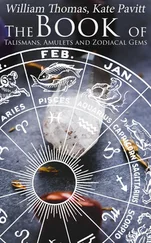Will Thomas - Fatal Enquiry
Здесь есть возможность читать онлайн «Will Thomas - Fatal Enquiry» весь текст электронной книги совершенно бесплатно (целиком полную версию без сокращений). В некоторых случаях можно слушать аудио, скачать через торрент в формате fb2 и присутствует краткое содержание. Жанр: Исторический детектив, на английском языке. Описание произведения, (предисловие) а так же отзывы посетителей доступны на портале библиотеки ЛибКат.
- Название:Fatal Enquiry
- Автор:
- Жанр:
- Год:неизвестен
- ISBN:нет данных
- Рейтинг книги:4 / 5. Голосов: 1
-
Избранное:Добавить в избранное
- Отзывы:
-
Ваша оценка:
- 80
- 1
- 2
- 3
- 4
- 5
Fatal Enquiry: краткое содержание, описание и аннотация
Предлагаем к чтению аннотацию, описание, краткое содержание или предисловие (зависит от того, что написал сам автор книги «Fatal Enquiry»). Если вы не нашли необходимую информацию о книге — напишите в комментариях, мы постараемся отыскать её.
Fatal Enquiry — читать онлайн бесплатно полную книгу (весь текст) целиком
Ниже представлен текст книги, разбитый по страницам. Система сохранения места последней прочитанной страницы, позволяет с удобством читать онлайн бесплатно книгу «Fatal Enquiry», без необходимости каждый раз заново искать на чём Вы остановились. Поставьте закладку, и сможете в любой момент перейти на страницу, на которой закончили чтение.
Интервал:
Закладка:
“Thank you, Mac.”
“Not at all, sir.”
I was twenty-two and still entranced with the process of shaving. The beaver brush and silver mug, the straight razor, and the leather strop all had their allure. The hot towel, the ewer full of steaming water, and the cake of soap whipped to a froth. There is something challenging about starting the day by putting a lethally sharp blade to one’s throat.
Downstairs, I started a fire in the stove and made coffee. Most of the food was gone, but there were still eggs. I made an omelette for myself, and though it was rudimentary and not approaching the sublimity of one of Etienne’s creations, it still took the edge off my hunger, which was all that concerned me.
I looked forward to going to the British Museum, which, in my opinion, did not even qualify as work. If I had been off that day I’d probably have gone there, anyway. The Reading Room might qualify as my favorite spot in London. It represents to me the height of beauty, comfort, and scholarship all brought together under one beautifully domed roof. Why would anyone want to leave it?
CHAPTER TWENTY-TWO
Shambhala was one of those names I’d heard or read of somewhere in my studies, and one a classics scholar is supposed to know, but to tell the truth, whether the place was actual or literary, I had not the slightest idea. There wasn’t a book on the subject in my employer’s library. As rough-and-tumble as he was, Cyrus Barker respected the knowledge that could be obtained in books, and his collection, while not especially deep on any one subject, was large enough to attract a bibliophile like myself. So far I had skipped across it like a flat stone on a placid lake. I hadn’t realized, up to that moment, how much I had come to rely upon it for information and research, if not for entertainment. Much of it was in foreign tongues and modern novels were scarce, but I was giving myself a second education through the study of Barker’s haphazard bookshelf.
Before settling myself in the Reading Room, I often liked to poke about the mummies from Egypt and the Asian relics, basking in the antiquity and the wisdom of ages past, but that day, I simply made my way to the desk which I consider my own, P-16, and fell into the chair. I breathed in the must of books and listened to the echoing murmur of scholarship. The Bodleian may beat it for research, but not for the sheer joy of sitting surrounded by books for which you never have to pay a farthing. I love its perfect gold-leafed dome and its curving recessed bookcases and the blue-green-leather-clad rows of desks radiating out like the spokes of a wheel. Its staff is deferential and knowledgeable and often better dressed than the patrons who can occasionally be rather scruffy and eccentric looking, present company excluded.
“Excuse me,” I said to a passing librarian. “Could you help me find something?”
“Certainly, sir,” the man replied with formality. “For what, pray, are we looking today?”
“I’m searching for something called Shambhala,” I told him.
“Aren’t we all? If you’ll excuse me, sir, I shall return in a couple of minutes.”
I listened to the echoed coughs and conversations, the whisper of pencil on paper and the scrapings of chairs. It never failed to soothe my fraught nerves. It’s as if the books absorbed all of the tension.
“Follow me, sir,” the librarian murmured at my elbow. I got up and went after him. He moved so silently that I could not help but look down at his shoes. On his feet, he wore a pair of patent-leather opera slippers with thick felt soles attached to the bottom. Perhaps, I told myself, the staff is in its way as eccentric as the patrons. He led me to a large table not far from the front entrance, stacked high with books and notepads. A space had been cleared in front of a brace of chairs save for two small and aged volumes in imminent danger of falling into dust. The librarian donned a pair of white gloves, sat in one of the chairs, and opened the first book carefully as I seated myself beside him. He was fiftyish with gray hair and hooded eyes behind a pair of pince-nez spectacles. He was tall, of medium build, and wholly unremarkable in appearance, a bookish man, even by the standards of the people who inhabited this vast chamber.
“There isn’t a great deal written about Shambhala, I’m afraid, at least very little that has been translated from the original Tibetan. Shambhala is a mythical city or country, either in Tibet or the Gobi Desert, or possibly along the ethereal plane.”
“Did you just say ‘ethereal plane’?” I asked.
“Yes, sir, I’m afraid I did. There is some question whether Shambhala exists on Earth at all. If it does, it is a fabulous city of gold and jewels and a highly enlightened people, a utopia, if you will, and if it does not, it is a place which exists outside of our universe, not unlike heaven, which one can enter at will only after many years of study in Tibetan Buddhism. Does that help you?”
“I have no idea. I was merely told by my employer to research Shambhala.”
“Would your employer be the mysterious Mr. Barker for whom everyone is searching?”
“How did you know?”
He gave a wan smile. “I’m afraid the library staff are a group of old women when it comes to gossip. They know most of their customers by name. You, for example, are Mr. Llewelyn, who was recommended to the museum by Lord Glendeening. You like to read poetry.”
“I do,” I confessed. “But I notice you didn’t include yourself in the group.”
“Oh, I am not a librarian, Mr. Llewelyn, much as it would please me to be one. I am merely a humble scholar.”
“Good heavens,” I said, standing quickly. “I do apologize. I thought you were a member of the staff.”
“Oh, don’t apolgize,” he said, raising a hand and smiling. “I take it as a high compliment when someone confuses me with the staff here.”
“So, you’re just a patron, like me?”
“Not precisely. One could say for all intents and purposes that I live here. I’m the first in the door each morning and the last one out of the door at night. In fact, they are kind enough to let me in early most of the time. They don’t like their first patron hovering outside.”
It turned out that I had disturbed another of the eccentrics that, chameleonlike, had attached himself to the edifice.
“Don’t you have an occupation?”
“None save the accumulation of knowledge. I have an ample private income and have nothing or no one in particular to spend it on. And I like to help people like you when I can, in an amateur capacity, of course.”
“What is your field of study?”
“Any and everything. I’ve dipped into most of the books in this library. I do have an interest in esoterica, such as the possibly noncorporeal existence of a land known as Shambhala.”
“I thought you seemed well versed in the subject.”
“The information that exists is only found in these two old volumes. The first is from The Relaceo, by Father Estavio Cacella, a Jesuit missionary in Tibet. The second is from The Journal of the Royal Asiatic Society by a Hungarian Orientalist, Alexander Csoma de Koros. Both speak of a fabulous city of the north. De Koros calls it the Buddhist Jerusalem. This city may be found in China or in the north of Tibet.”
“So, which is it? Is Shambhala of this world, or the next, in your opinion?”
“In my opinion?” he asked, touching his chest and leaving brown, velvety dust on his waistcoat. “Who cares about what I think?”
“I do. That is, it seems to me to be an educated opinion.”
“You honor me. Either that or you are in a hurry. I really dislike giving opinions. What if I am wrong?”
Читать дальшеИнтервал:
Закладка:
Похожие книги на «Fatal Enquiry»
Представляем Вашему вниманию похожие книги на «Fatal Enquiry» списком для выбора. Мы отобрали схожую по названию и смыслу литературу в надежде предоставить читателям больше вариантов отыскать новые, интересные, ещё непрочитанные произведения.
Обсуждение, отзывы о книге «Fatal Enquiry» и просто собственные мнения читателей. Оставьте ваши комментарии, напишите, что Вы думаете о произведении, его смысле или главных героях. Укажите что конкретно понравилось, а что нет, и почему Вы так считаете.
